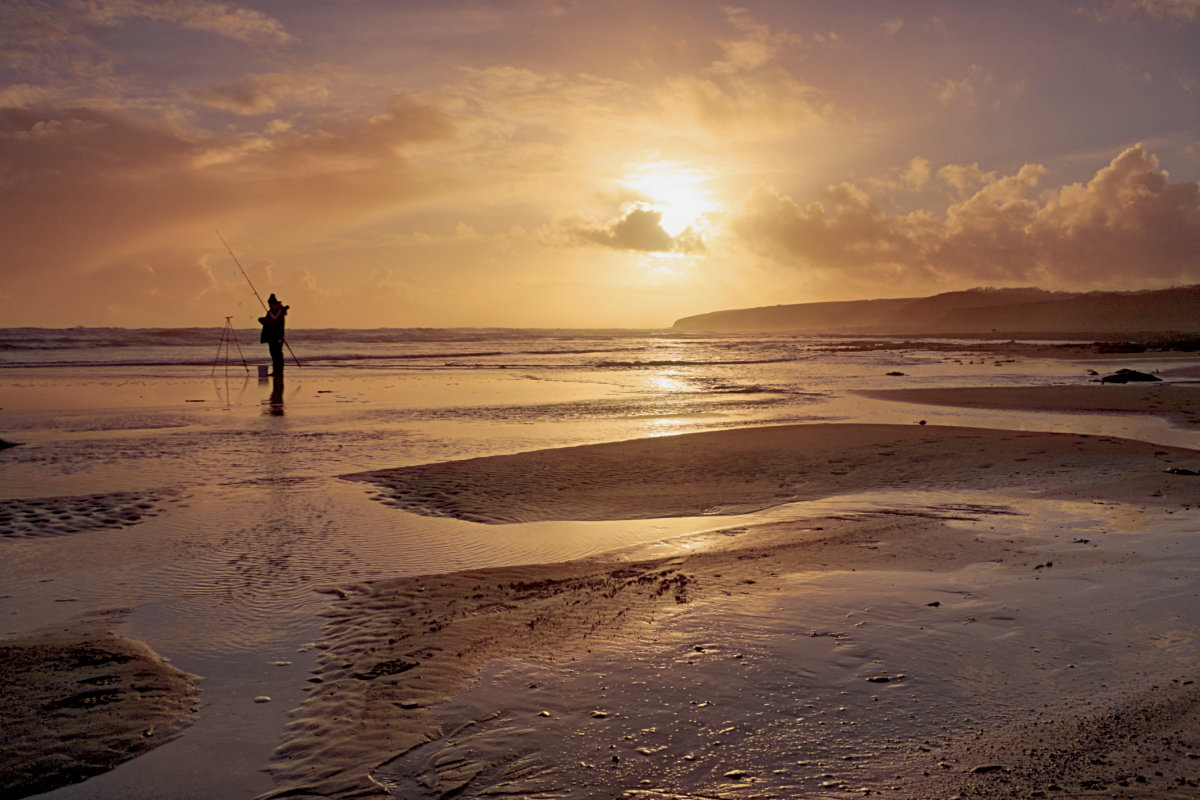If you are familiar with fishing and all aspects of it, you probably know that there are many factors beyond your control, such as water currents, waves, and tides. Those who enjoy fishing might even wish to go during low tides. Thus, it’s best to be well aware of the risks and precautions.
Generally, fishing at low tide is not the best time if you are looking forward to catching a lot of fish. Yet, this does not mean that it’s impossible to achieve. Fishing at low tide will definitely put your fishing skills to the test.
Figuring out if fishing at low tide is worth the shot or not can be confusing. Figuring out when to take the risk and when not to is even more complex. There are also many more factors one has to consider while fishing during this time. Thus, I would recommend reading all the way to the end! So, in this article, I have put together all the information about low tide fishing![]() .
.
Is Fishing At Low Tide Bad?
Fishing depends a lot on luck and the set of skills![]() you possess. Hence, fishing at low tide
you possess. Hence, fishing at low tide![]() has different results for different people. Below, I have provided all the pros and cons to help you determine if it is worth fishing at low tide or not
has different results for different people. Below, I have provided all the pros and cons to help you determine if it is worth fishing at low tide or not
Cons
Low tides can![]() be a difficult time for fishing. During low tides, the fish are quite far away from the shore. The water will be quite shallow too. Sometimes, there is no water movement at all for several hours during this time. As a result, it is less likely that the fish will be feeding at that time.
be a difficult time for fishing. During low tides, the fish are quite far away from the shore. The water will be quite shallow too. Sometimes, there is no water movement at all for several hours during this time. As a result, it is less likely that the fish will be feeding at that time.
The reason why fish do not feed at that time is due to no movement from the water. The baitfish, which serve as food to lure![]() in these fish, might also not be moving. In this slack stage, many burrow into the sand or mud.
in these fish, might also not be moving. In this slack stage, many burrow into the sand or mud.
Also, the stagnant water will drive the fish away even further. The fish will go away to deeper holes where the water is deep.
Pros
If you can manage to find the spot![]() within the holes where the fish have hidden away, you will find that a lot of fish are present there. Thus, there is a higher chance of them taking the bait. The fish are more vulnerable in these areas.
within the holes where the fish have hidden away, you will find that a lot of fish are present there. Thus, there is a higher chance of them taking the bait. The fish are more vulnerable in these areas.
Moreover, due to the stationary movements of the water, you can see things better, which can work to your advantage. You can see the overall structure of the beach, such as the depressions, etc. This can serve as important information regarding fishing at tides.
Due to your clearer vision, you will know the perfect spot where you can lower your bait. Some hassles can be diminished during low tides, too, as the fish will not get tangled up in roots or grass. Since they are out of their natural cover, it is also easier to reel in the fish.
So, if you want to learn and experience fishing at low tide, I would not discourage you. Yet, make sure you have seen the local tide charts beforehand and are aware of its magnitude so as not to put yourself at risk. As a suggestion, I can say that it is better to stick to rising or falling tides.
What Precautions To Take During Low Tide Fishing?
Willing to fish at low tide can be an admirable feat because you are going for it while knowing the results might be disappointing. Therefore, since it is not the best time to go fishing, you should follow certain precautions.
Wind Pattern
Wind helps with tidal heights and the current of the water. Set up your anchor or drift pattern so that you are fishing in the direction of the wind. The wind can help disguise your bait as it causes the sand and mud to blend with the water. Wind can create favorable conditions for you by piling bait along your drop-off.
Sound
While reeling in the fish, make as little noise as possible. Due to the stationary motions of the water, the fish’s hearing is enhanced. So, they can scatter if they suspect predators or any dangerous activity.
Go For Deeper Water
The fish hide in deeper waters during low tides, so focus more on those areas. Look for deeper waters with both current and structure. In turn, you can use the bottom structure to attract fish. These are sometimes referred to as ambush points. This setup will help you catch a good number of fish in a short amount of time.
Look For Birds
On some occasions, birds can actually spot your bait for you. Examples of such birds can be seagulls, herrings, and more. Predatory fish consider them as a source of feed. So, if you find such birds floating close to the surface of the water, you know what to do.
Regularly Change Your Spots.
Do not permanently settle for a spot with which you are well acquainted. Instead, move around and alter your spots because you might find fish elsewhere. Staying in one spot will also waste your time while giving disappointing results.
You can focus on underwater weed beds with potholes involved for better results. You can also concentrate on areas such as cuts in between islands. Even if you do not find enough fish there, move around.
Do Your Research
This tip applies to all fishing conditions![]() . Make sure that you have checked up on the weather, tidal charts, structure of the base, weak spots, or anything that could be helpful or detrimental to your fishing experience.
. Make sure that you have checked up on the weather, tidal charts, structure of the base, weak spots, or anything that could be helpful or detrimental to your fishing experience.
For additional directions, you can take a look at this video here.
Is It Better to Fish at High Tide or Low Tide?
Both high tides and low tides are not the best times for fishing. Both make the water stagnant, making it difficult to spot or lure in fish. Yet, you can catch a good number of fish before high or low tides. These are the rising and falling tides.
For falling tides, you should go fishing two hours before low tide. As the water’s motion changes from high to low, the water gradually begins to push out. Eventually, its rate will increase too.
The water sucks in insects or small plants that the fish like to feed on during this time. Eventually, the water will reach the center and the deeper parts, attracting a lot of fish.
Rising tides take place when the water is moving from low to high. As soon as the water starts to move, the fish urge to feed. The rising tides bring forth an abundance of bait for the fish.
As the feeding of the fish is enhanced, you can easily catch a good number of fish. The rising tide is deemed the best time for fishing.
Conclusion
After reading the article, I hope you have the proper insight regarding low tide fishing. It is up to you to decide if it is worth fishing at low tide or not. After all, you know best what skills you possess and how much patience you have.
It is definitely an excellent opportunity to challenge your existing skills. Happy fishing, and thanks for stopping by!

